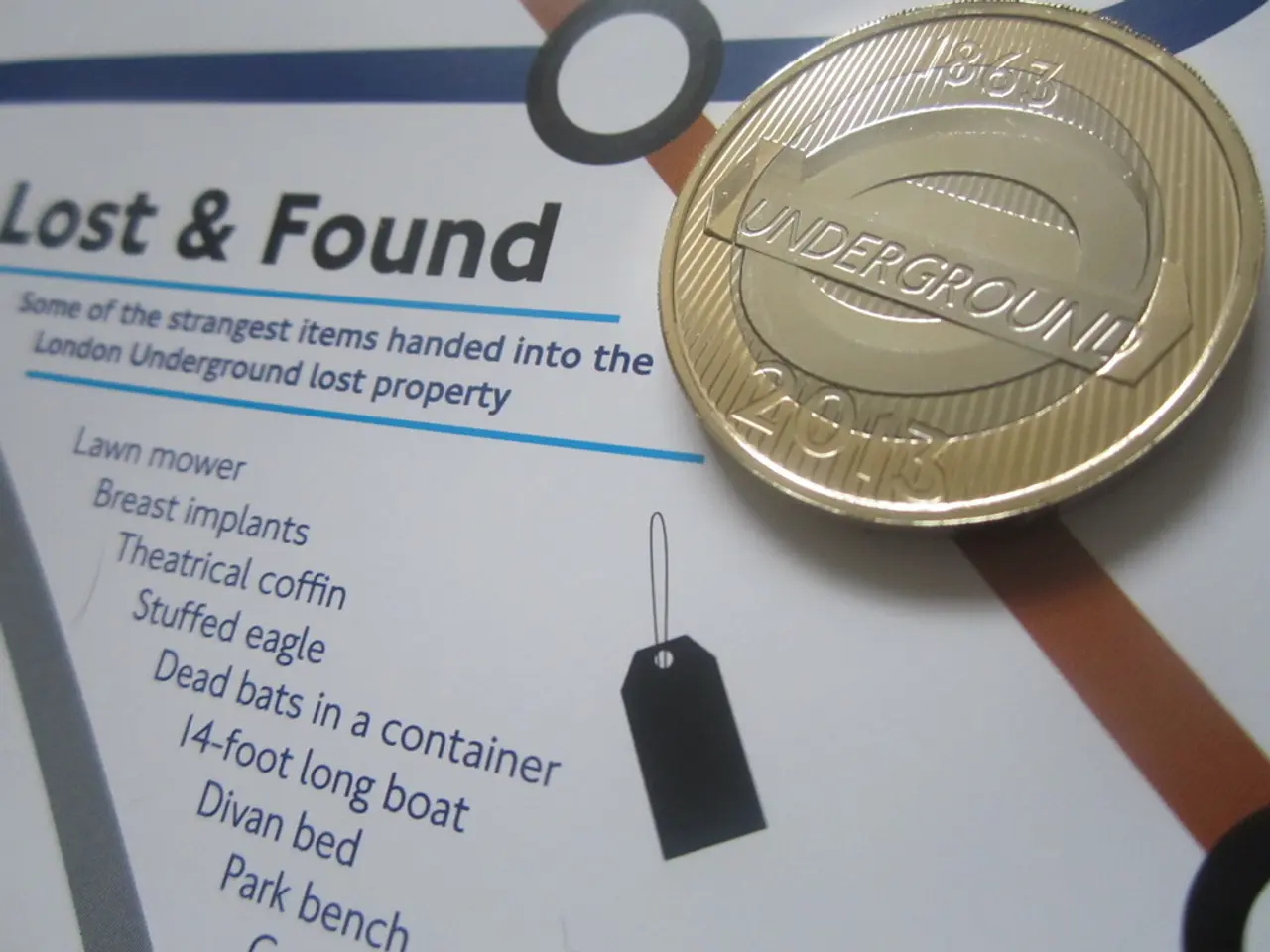South Africa's Crackdown on Cryptocurrency Crimes
South Africa and Kenya are making strides in the digital asset industry, with both countries introducing new regulations to combat money laundering and ensure a secure environment for virtual asset service providers (VASPs).
In South Africa, Nedbank, a traditional finance institution, is planning to debut smart contract applications within the next 12 months. These applications could revolutionize farming operations by reducing paperwork and human intervention, as well as fast-track the credit financing process. The Financial Intelligence Center (FIC) has issued a warning to VASPs about the increasing use of cryptocurrencies for money laundering, and is concerned about transactions involving anonymous accounts, sudden large deposits, and funds coming from mixing services. To combat these risks, South African VASPs must obtain appropriate licensing from the Financial Sector Conduct Authority (FSCA), comply with identity information sharing under the Travel Rule, and adhere to evolving Anti-Money Laundering/Counter-Terrorist Financing (AML/CFT) standards aligned with Financial Action Task Force (FATF) recommendations.
Across the continent, Kenya is drafting a new bill, the Virtual Assets Service Providers (VASP) Bill 2025, to regulate the crypto industry. The bill requires VASPs to get licensed, open physical offices, implement anti-money laundering checks, collect user information, and share it with authorities when required. This is a significant shift from Kenya's previous stance, which advised banks to avoid anything crypto-related. The change is due to the growth of crypto activity in the country and high-profile scams.
Meanwhile, Absa CIB has already implemented blockchain for digitizing letters of credit in South Africa, and First National Bank is developing a system for digital title deeds. On the philanthropic front, Ripple donated 25,000 RLUSD stablecoin to provide drought relief to Kenyan herders.
Alex Witt, of Verda Ventures, discussed the firm's strategy in a Q&A series, Sidebar. Verda Ventures manages a $40 million Minipay fund and is seeking listings on Yellow Card and Roqqu. Sign-up opportunities for Bybit Academy via AltSchool Africa, Mento Labs's Global Stablecoin Hackathon, and Web3bridge cohort XIII are also available.
As both countries move forward with digital asset regulation, they are addressing gaps highlighted by FATF's 2025 report, particularly around supervision, risk assessment, and identification of entities involved in virtual asset services. This is a crucial step in responding to the increasing sophistication in crypto-crime such as the illicit use of stablecoins and decentralized finance platforms.
Sources: [1] Nedbank to Deploy Smart Contract Technology for Automating Farming Operations and Trade Processes. (n.d.). Retrieved from https://www.itweb.co.za/content/KdPwC2l6TFp1Xu6 [2] Absa CIB Already Implemented Blockchain for Digitizing Letters of Credit in South Africa. (n.d.). Retrieved from https://www.itweb.co.za/content/KdPwC2l6TFp1Xu6 [3] South Africa Requires Virtual Asset Service Providers to Comply with AML and CFT Regulations. (n.d.). Retrieved from https://www.coindesk.com/business/2023/04/27/south-africa-requires-virtual-asset-service-providers-to-comply-with-aml-and-cft-regulations/ [4] South Africa's Financial Intelligence Centre Warns of Crypto Money Laundering Risks. (n.d.). Retrieved from https://www.reuters.com/business/finance/south-africas-financial-intelligence-centre-warns-crypto-money-laundering-risks-2023-04-27/ [5] FIC Found Nine Crypto Platforms Linked to Suspicious Activities. (n.d.). Retrieved from https://www.enca.com/south-africa/fic-found-nine-crypto-platforms-linked-to-suspicious-activities [6] Kenya to Regulate Crypto Industry with New Bill. (n.d.). Retrieved from https://www.coindesk.com/policy/2023/05/10/kenya-to-regulate-crypto-industry-with-new-bill/ [7] Kenya's New Bill Aims to Bring VASPs Under Regulatory Purview of Kenyan Capital Markets Association and Central Bank of Kenya. (n.d.). Retrieved from https://www.coindesk.com/policy/2023/05/10/kenyas-new-bill-aims-to-bring-vasps-under-regulatory-purview-of-kenyan-capital-markets-association-and-central-bank-of-kenya/ [8] Kenya's New Bill Requires VASPs to Get Licensed, Open Physical Offices, Implement Anti-Money Laundering Checks, Collect User Information, and Share It with Authorities When Required. (n.d.). Retrieved from https://www.coindesk.com/business/2023/05/10/kenyas-new-bill-requires-vasps-to-get-licensed-open-physical-offices-implement-anti-money-laundering-checks-collect-user-information-and-share-it-with-authorities-when-required/ [9] Corbus de Bruyn Believes Smart Contracts Could Revolutionize Farming Operations. (n.d.). Retrieved from https://www.itweb.co.za/content/KdPwC2l6TFp1Xu6 [10] Ripple Donates 25,000 RLUSD Stablecoin to Provide Drought Relief to Kenyan Herders. (n.d.). Retrieved from https://www.coindesk.com/business/2023/05/12/ripple-donates-25000-rlusd-stablecoin-to-provide-drought-relief-to-kenyan-herders/
- In South Africa, financial institutions like Nedbank are exploring the use of fintech solutions, such as smart contract technology, to streamline farming operations and credit financing, demonstrating the intersection of traditional finance and technology in Africa.
- Simultaneously, Absa CIB has already implemented blockchain technology for digitizing letters of credit in South Africa, highlighting the growing adoption of blockchain in the continent's financial sector.
- In alignment with global standards, South African regulatory bodies are intensifying their focus on cryptocurrencies and virtual asset service providers (VASPs), making an effort to combat money laundering and establish a secure environment for digital asset transactions.
- The Kenyan government is also drafting new legislation, the Virtual Assets Service Providers (VASP) Bill 2025, to regulate cryptocurrency activities and ensure that VASPs adhere to anti-money laundering (AML) practices for greater transparency and security.
- As the African crypto industry continues to evolve, regulating bodies in both South Africa and Kenya are paying close attention to matters such as stablecoin use and decentralized finance (DeFi) platforms to address emerging risks and minimize crypto-crime.
- These strides in cryptocurrency regulation across Africa not only aim to combat money laundering but also provide opportunities for philanthropic efforts, as seen with Ripple's donation of a stablecoin to provide drought relief in Kenya.




